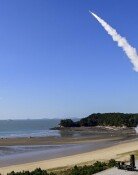[Opinion] Older Brother
Hangyeryeong, a short story written by Yang Gwi-ja, features a complex older brother. In the story, The older brother who has been straightforward and hard-headed begins suffering from depression in his middle years. He is the son his parents loved the most, but as the breadwinner, he has to pay for his younger siblings education. The reticent older brother, who has been a guardian of the family and cared about them with deep love, looks exhausted as he turns fifty. Seeing her weakened older brother, his sister sheds tears. The image of the older brother in the story is reminiscent of most Korean older brothers up until recently.
Exactly ten years later, however, a diametrically opposite older brother appeared in another short story, The Old Brother Returns, by Kim Yeong-ha. The runaway older brother, who used to steal his sisters underwear from the washing machine and engage in other perverse acts, returns home with his ugly girlfriend and commits the inhumane act of beating his father. Though the author describes him in an extreme way, the fall of the older brother in the story is quite realistic in that it coincides with the fall of the patriarchal system over the past decade.
These days, older brothers are abundant. Women use the word oppa, a Korean word meaning old brother, when referring to male friends and boyfriends to husbands and guests in a bar. People call others their older brother so frequently and easily that a sister feels awkward when she calls her real brother oppa. Some give a paradoxical explanation that the term oppa became common as people long for old brothers. In a society where everybody is busy caring only about themselves, like a line from a popular song that goes, Dont cry Hongdo, your old brother is here for you, the longing is a reflection of women who want an older brother who will protect them even at his last moment, and will show his lasting love for them.
Some analyze that women calling every man their older brother is a ploy to exploit vulnerable men. Shin Jeong-ah, who is in her thirties, refers to the fifty-something, Byeon Yang-gyun, oppa in her e-mails. Another oppa in his fifties says, Men in their middle years become especially vulnerable when they are called oppa. This can be interpreted as a reaction to their worries that they are losing their sexual identities as they grow older. Shins smile, directed at the prosecution after questioning, was in stark contrast to Byeons empty and exhausted look. I felt bitter as if I was watching a portrait of a typical Korean middle-aged man.
Huh Mun0myeong, Editorial Writer, angelhuh@donga.com







